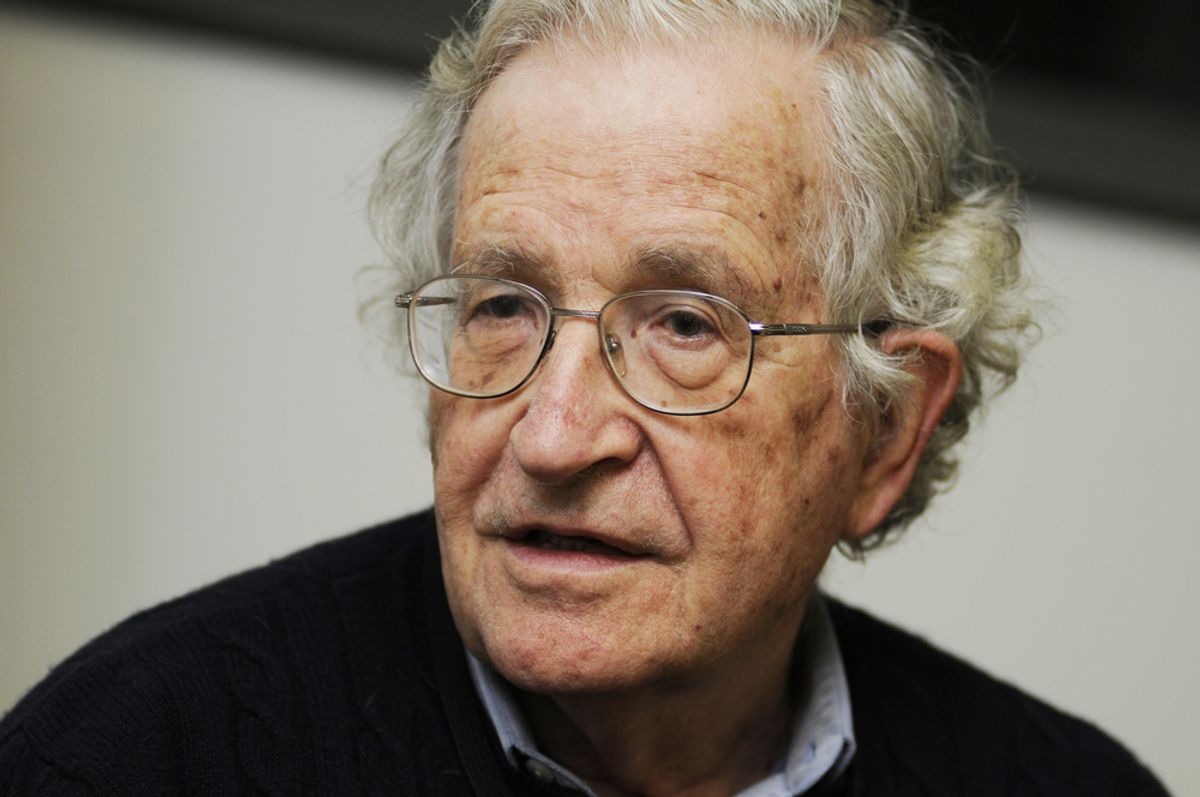 Noam Chomsky, 87, is without a doubt the most significant academic figure to cast a highly critical eye on U.S. foreign policies. The 2016 U.S. presidential primaries are in motion and with democratic socialist Bernie Sanders challenging Hillary Clinton for the Democratic presidential nomination, it may be prudent for valued thinkers like Chomsky to turn that eye in on American soil and the inner gears of its political machine.
Noam Chomsky, 87, is without a doubt the most significant academic figure to cast a highly critical eye on U.S. foreign policies. The 2016 U.S. presidential primaries are in motion and with democratic socialist Bernie Sanders challenging Hillary Clinton for the Democratic presidential nomination, it may be prudent for valued thinkers like Chomsky to turn that eye in on American soil and the inner gears of its political machine.
Aaron Williams: Many people now get their daily news via the news feed on their social media accounts. Unfortunately, these articles are sometimes posted by publications with a particular political leaning and use misleading or misinforming titles that paint their side more favorably. Fortunately, there are many who see past the headline and leave critical feedback.
Noam Chomsky: Furthermore, social media tend to be quite superficial. And they appear to encourage what some young people call “skim reading.”
Williams: How important do you think social media has become these days for making an informed public and how much of an impact do you think it can have on grassroots movements?
Chomsky: They are useful for organizing, but as information sources they do not begin to compare with print media, in my opinion. Nor do TV or radio.
Williams: Bernie Sanders has been quite outspoken about breaking up banks that are "too big to fail." Rolling Stone recently published an article that speculated on the idea ultimately doing more harm than voters may realize, with corporate bank spinoffs making much more money than they would before a breakup, with some people being driven out of banking to form much less regulated hedge funds. What is your opinion on this? Do you think banks that are "too big" should be broken up?
Chomsky: The consequences should be carefully explored. I haven’t done so.
Williams: What are your opinions on the surprising progress of Donald Trump? Could it be explained by a climate of fear?
Chomsky: Fear, along with the breakdown of society during the neoliberal period. People feel isolated, helpless, victim of powerful forces that they do not understand and cannot influence. It’s interesting to compare the situation in the ‘30s, which I’m old enough to remember. Objectively, poverty and suffering were far greater. But even among poor working people and the unemployed, there was a sense of hope that is lacking now, in large part because of the growth of a militant labor movement and also the existence of political organizations outside the mainstream.
Williams: With like outspoken socialists Bernie Sanders and UK Labour Party leader Jeremy Corbyn's current successes, is this a new political age and is this a direct result of austerity?
Chomsky: Sanders, in my opinion, is an honest and decent New Deal Democrat. Corbyn expresses stands of traditional Labour. The fact that they are regarded as “extreme” is a comment on the shift to the right of the whole political spectrum during the neoliberal period.
Williams:Who do you see becoming the next U.S. president?
Chomsky: I can express hopes and fears, but not predictions.



Shares